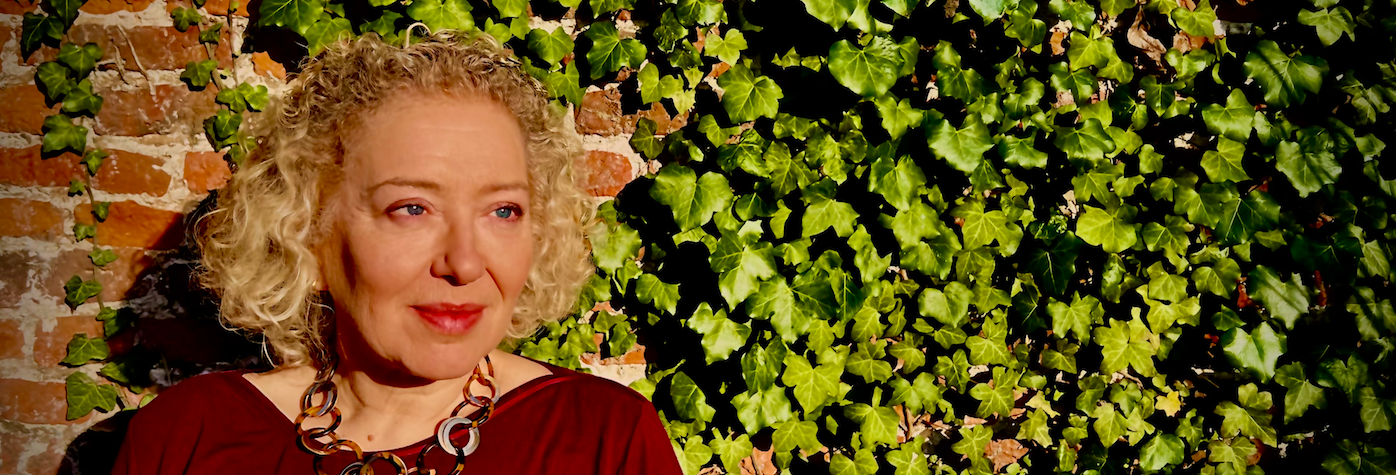There are two photographs on the desk Vita Sackville-West kept in the tower of Sissinghurst Castle. One of her husband, the writer and diplomat Harold Nicolson, and one of Virginia Woolf. The brief physical passion Vita and Virginia shared was already over before Vita and Harold bought Sissinghurst in 1930, but Virginia told a friend, just months before her death, that apart from her husband Leonard and her sister Vanessa, Vita was the only person she really loved. Vita and Virginia, a new film opening on July 5 in the UK (and late August in the US), explores a relationship that may have lessons for today.
The relationship would inspire Virginia Woolf’s novel Orlando, whose gender-swapping hero(ine) was openly an exploration of Vita’s complex identity. But behind the colour and the cultural history lies a more instructive story. Both Vita and Virginia were married and happily remained so, their husbands accepting their relationship with extraordinary generosity.
The film can justly claim attention today for its exploration of gender fluidity, the way in which – like The Favourite and Gentleman Jack – it carries the LGBT flag into the once-conservative world of the period movie. But in our toxic times, with mounting levels of hostility in public life and on social media, the sheer kindness with which all four of the real-life protagonists treated each other may be even more important.
When the two women met in 1922, introduced by Virginia’s brother-in-law Clive Bell, Vita’s decade-long marriage to Harold Nicolson had produced two sons – and had already survived Vita’s far more explosive relationship with Violet Trefusis, under whose influence Vita, said Harold, became ‘like a jellyfish addicted to cocaine’. (Vita ran away with Violet disguised as a man – the relationship described by Nigel Nicolson in Portrait of a Marriage.) In the years ahead Vita would have many more liaisons with women, while Harold too ran their long and successful marriage in tandem with his gay relationships. Theirs has been called a ‘lavender marriage’ – an arrangement between two homosexual people, made for the convenience of a heterosexual society – but that hardly describes the emotional ardour they felt for each other. ‘Please don’t fall too much in love with Mr. Jebb’, Vita wrote to Harold once. ‘I don’t mind who you sleep with, so long as I may keep your heart!’
When Vita’s relationship with Virginia first began, Harold did sound a note of caution. ‘It is such a powder magazine. I am far more worried for Virginia and Leonard’s sake than for ours.’ He feared lest Virginia should be made ill, he even feared that Virginia’s company might make his seem dull. But ‘I know that it does you moral and mental good to be with her and be loved by her and that is all that matters’, he assured Vita. He even wrote to Virginia: ‘I am glad that Vita has come under an influence so stimulating and so sane’. He loathed jealousy as he loathed all forms of disease. He accepted Vita’s assurance that ‘really, my sweet, one’s love for Virginia is a very different thing: a mental thing, a spiritual thing if you like’. That she was ‘scared to death’ of arousing physical feelings in Virginia ‘because of the madness’. But though their physical attraction had cooled by the end of the 1920s, the two women’s relationship with each other, as with their husbands, would endure.
Virginia wrote to Vita once: ‘In all London, you and I alone like being married.’ In her diary, she described her relationship with Leonard as ‘the core of my life’. Though the relationship of the Woolfs has been exhaustively explored, Leonard’s feelings about that of Virginia and Vita are less clearly recorded than are Harold’s. But many years down the line, in 1941, he would write to Vita on the very day of Virginia’s suicide. ‘I know what you will feel & what you felt for her.’

The Woolfs and the Nicolsons together could join a party travelling north to watch a solar eclipse – an episode in the new film that came under particular attack from Virginia Nicholson, Virginia Woolf’s great-niece, writing recently in The Times. Acknowledging that films based on real-life historical episodes are ‘a respectable genre’ – that simplification or worse ‘can be forgiven if we feel we are in the presence of a greater truth’ – she nonetheless felt ‘punched around the head by fallacies and anachronisms’.
Vita’s granddaughter Juliet Nicolson in Harper’s Bazaar had written far more warmly of director Chanya Button’s movie. . . But as the makers of Tolkien know to their cost, ownership of the lives of the famous and only recently deceased is a hot issue today. The biopic is a bombshell, basically – and the critical jury on Vita and Virginia is still out. But even if the verdict says it falls short of providing that ‘greater truth’, that shouldn’t obscure the importance of the real four-way story.
